SHOW ME THE LOAN
A legal doctrine developed by: John Chester; of the family Stuart
The government did not want to end prohibition. It was great for the politicians. Over a period of time, over 70,000 lawsuits were filed against prohibition. The government could not fight them anymore and got rid of prohibition.
The new concepts are based on these concepts of law which fall under contract law. Specific performance in real estate: You go to buy a house, they screw up and you don’t get the house. Under specific performance you can refuse to take another house or your money returned – you want that house. You have to go into a replevin concept where they give you some reasonable value. Those are fights that you have in contract law, which is what we want to use.
The nice aspect of it is that we have come along this far to the documentation and everything we are going to be claiming here, they have already confessed to by fighting us. Now they cannot change their minds. A lot of what kind of blackballed me from the guru aspect of this was the fact that I was right. But, they don’t need to be right. They just need to make money. A lot of it was based on the concept, in law, that most people do not really understand. It is the difference between a covenant and a contract.
There is a difference between a contract and a covenant. If you read the law and the legal definitions, they are substantially different. If you remember when you were in school, you said the Pledge of Allegiance. “I pledge allegiance to the flag of the united States of America.” Exactly what was that flag giving in return? Nothing. That is a pledge. “I pledge allegiance.” A pledge is a covenant. It’s unilateral.
When you do a covenant:
Go through your Deed of Trust, your Mortgage, etc., they use the word “covenant.” They do not use the word “contract.” There is a reason for it. They are never going to give you anything. You already have everything. It is legalese for, “I’m going to shaft you really bad and you’re going to thank me later.” You have to understand the difference between a contract and a covenant. The laws are so applicable that you enter into it believing it was a contract.
Here is the issue: We go through this whole thing, and the whole time the banks are yelling and screaming that, “We never separated the Note and the Deed of Trust.” Are they telling the truth or are they lying? They are telling the truth because those two documents were never together. That is where they have you. They were never intended to be together. They can never be together in law. The Deed of Trust got recorded and the Note went to the lender.
We have all kinds of evidence of that. The first thing they do with the Note is they give it over to someone to cash it. The first thing they do with the Deed of Trust is they run it over to the County Recorder’s Office. Did they separate them which would invalidate everything, or were they never together? They were never together to begin with. They never lied about that. They tricked us.
The Deed of Trust (Mortgage) – that contractual agreement which is truly a covenant says, “This Deed of Trust is evidenced by the Note.” There is no note. That is all a separate deal. What is the Deed of Trust evidenced by? Nothing. It does not exist in law. It is a mortgage. It is dead. You eventually bring it back to life because you send them a check or cash or money order every month. In law, if you make someone an offer, and behind that offer is written ‘in valuable consideration’ (in this instance, it would be cash) and they accept that cash, then we have brought that deal back to life.
The mortgage was dead. There were two deals. You sold them a Promissory Note, i.e., you are buying a house for $500,000. You give them a Promissory Note, they give you the $500,000 or they give it to the home builder and now you have the house. That is a fair and even exchange, lawful and legal. You are done.
Now, for some reason, you wanted to borrow $500,000 from them. That is a separate deal. This deal (Promissory Note) is done, now you want to do this other deal. If you pay them, when did you get the $500,000? There is a bit of an issue there. Here is what happened in law and in reality, and here is what the law has to say about this… Example/concept: Now that we are here and now that the banks say, “It is our note.” Okay, it is your note. You bought it fair and square.
If I sell you my car, can I come back yelling at you saying, “You can’t take the doors off it, you can’t paint it pink, you can’t do anything.” Do I have a legal right to say that? No. They can do whatever they want. They don’t even need to bring it to court.
When you sold them the Note, what did they do with it? They stamped the note: “Paid to the Order of __________ (put a third party name on it) without recourse.” According to the Federal Reserve, what is that Note now? It’s a check. Did they cash the check? It is a bearer instrument payable to the holder. Do we have a name for that? Check. It’s a bearer’s instrument. It’s a check. What is a check? A check is a bearer’s instrument. If I have a check given from you by you to me, am I the bearer of that? Yes. They cashed the check.
Do you understand what happened here? If I sell you this book for $1.00 and you go away with this book, is that all right? Yes. What does this other book have to do with that deal? Nothing. It is a separate book. We now want to make a deal over this book. How do we know this for certain?
We have to start talking about the Mortgage. You sold them the check (Note), that deal is done. Now we have to talk about the other deal. What is happening is, everyone is saying, “Show me the note.” We should be saying, “Show me the Loan.” Because you sold them your check for $500,000. You got the $500,000. That Note is completed and perfected. It’s done.
Now we are over here talking about a Mortgage – a Deed of Trust – a loan – a contract that is really a covenant where you are borrowing $500,000. You are paying them every month. When did they loan you the $500,000? They never did. Who, by law, is in default? They are. Who is responsible to inform the Court when the other party is in default? You are. If you don’t inform the Court the other party is in default, what must the Court therefore presume? They are not in default. The Court and law are very clear on these aspects. It is not the Court’s job to come and do your job for you. The Court does not know who is in default. The bank says you are in default through the non-judicial process. You don’t argue it – that’s it. In Connolly v. General Accounting and numerous other cases: acquiescence is agreement. If you don’t say anything, you are in agreement.
Credit card companies operate on this concept. They send you a note or a letter stating you owe us this much money, and you don’t respond. By the time you respond, you are already being garnished. Do you understand why? Because you never argued. Affidavits stand in law if un-rebutted. If somebody says something and you don’t rebut it, you are in agreement with it. That is not in all cases.
For instance, in this case of the last couple of weeks. I don’t deal with the plaintiff who was not at all prepared to get on trial. She gets up on the stand and says that the bank says, “Well, didn’t we loan you the money?” And, she said, “Well, yes.”
Part of learning how to do this is going to be very direct and honest. There are all kinds of maxims of law and court rulings where, if you don’t have clean hands, then they have an argument. If one side of the hands are dirty, then there is your claim. You just win by default.
They asked her a simple question: “Did you get a loan from the bank?” It was over with for her. She said “yes.”
She never got a loan from the bank. Not only is she a liar, but she destroyed her own case. If she had said, “I never got a loan from the bank. I sold them the Promissory Note, they gave me the money, I bought the house with the money and I paid them for the loan, but they never gave me loan.” That would have been it. There is one sum certain, one lump of money (in this case, $500,000). Where did it go? It’s only one lump sum. You sold them the Promissory Note.
This is about winning. It is about doing the right thing. It is very simple. You sold them the Promissory Note, they gave you the cash, you went over and bought the house. Do you all understand that? I don’t care about the Note.
There is a thing in law called res judicata. Those that are attorneys or paralegals understand res judicata. Once it’s done, once it has been decided, it is over with. Res judicata means, “Shut the hell up. Don’t bring it in my Court.”
I can give you a million arguments on this. Do you know which one of them matters? The one that proves whether or not this happened. Nothing else happened. Everything in the documents, the banks have confessed this happened. They cannot argue about this any more. They have already tried to bitch-slap us in thirty different ways to say, “This is over with.” Ok. You bought the Note. This is done.
Now we must discuss this. Did you make your payments for an extended period of time? Shannon and I have a deal. Shannon, I need to borrow $1,000. Shannon agrees and says, “I’ll tell you what. I have plenty of money. You send me $10 a week for the next two years; that’s $1,040. I will lend you the $1,000 now and I will make $40 in the two years after. I am way under the usury laws, etc.” We are both happy. How many $10 payments do I have to make before I say, give me my $1,000? None. If I made a few payments, what number of payments that I have made can I come back and take him into court if he does not give me that $1,000? One-third. That’s it. He is in total default. If I made three payments and he does not give me the money, who is in default? He is.
How many people understand there are two difference cases here? They confessed they bought the Note. This is all done. So we only have the Deed of Trust argument. On their side of the Deed of Trust it says says: “This Deed of Trust is evidenced by the Note.” What Note? It’s sold. It’s gone. So what is the Deed of Trust evidenced by? Nothing. They have no evidence. So what did you do? You paid them. Even though the Mortgage/Deed of Trust has negotiations, that deal is dead. When you pay them, under the law of acceptance (equity chancery law), when this is on the table and no one has actually picked it up. If you go ahead and you start sending them the payment, did you pick it up and hand it to them by giving them payment? In law, if they accepted by payment, what did they also accept? The check. So what must they also do? They have to give you that $500,000 loan. There is only one $500,000 lump sum.
When you look at this deal, you see what is called a “specific performance.” You had a job to do. Did the bank have a job to do? What was your job to do? Make the monthly payments. What was the bank’s job to do? Loan you. Did you specifically perform your duties in pursuance of this convenant/contract?
You performed your job. You sent them a check. They cashed it.
This whole thing is a scam. How can you tell if a bank or a lawyer or a politician is lying? There are two rabbit holes. Everyone is going down the wrong rabbit hole. You are not going to find any rabbits down there. You are going to find snakes and worms, etc. Here is the rabbit. That is what you need to argue. That is what it is all about. Inside of there is the right to take your house. In the covenant, they have all kinds of rights. You don’t have any rights. Fraud in the factum; fraud in the inducement. When you believe it is a contract because you do not understand legalese, but it was a covenant, so they really are not tied in to be punished if they fail. Isn’t that the reason they probably made it a covenant and not contract? It’s all there. They did not lie to you, verbally. They did not make a misstatement and they had a liable mission so you can use that against them.
Militia/patriot groups sprung up. The most famous being the Posse Comitatus. Posse Comitatus was an Act by Congress after the Civil War. It states the United States will never use the military against its own people. That was the United States, not the corporate entity of the United States of America. We all remember Waco. That whole Act has some issues. When the Posse Comitatus sprung up, they used the legal doctrine of filing documents which we call liens. What these different groups did was they put liens on sheriffs and judges and government employees creating a nightmare. The way the government attacked these groups through the law was under certain aspects of the law that says when you record something and it is not correct, that is a crime. They had a lot of recordings to deprive people of their property so that it fell into terrorism. They did it in mass quantities to deprive whole areas of their land.
This is important. If you look up Arizona Revised Statutes §13-2301 and read it through (D)(4)(b)45, it defines filing false documents to deprive people of their lands as terrorism. It is terrorism for a group of people to get together and file false, fraudulent or forged documents in a public office. It is defined in Arizona law as one type of criminal act: terrorism.
Under terrorist laws, they do not have to prove you are a terrorist. The onus probandi is extrapolated from the Patriot Act to all acts of terrorism. The terrorists must disprove they were a terrorist. When you get charged as a terrorist and there is any evidence therein, you have to dispute it. There are all kinds of people in Guantanamo Bay who don’t have anything to do with anything, but they had some kind of association somewhere where they got charged as terrorists. They are there waiting to dispute that they are terrorists.
The law states that if you record documents that are fraudulent, forged or false, to deprive people of property, you are a terrorist. How many people have looked at the documents that the banks have filed and recorded? How many people have found one that is not false, fraudulent or forged? It goes a prima facie evidence.
The nuclear option
There is no way, under Arizona or U.S. law, that a CEO of any bank in this country can disprove that he is not a terrorist. They cannot. The law defines every CEO of every bank in this country as a terrorist. There are judicial notices of case law in support of this. That will get posted. Read it. It shows this. The banks did this about a thousand times every day.
It is ground in legal fact. We’ve got the recorded documents and I have the laws. They cannot state they accidentally recorded it. Accident a thousand times a day throughout the country?
For all of these people, it is imprisonment for life. If you read the Posse Comitatus, the banks are following their playbook. The only difference in the laws between the bankers and the so-called terrorists that are doing life imprisonment in recording this stuff is they wore camping t-shirts and the bankers are in Armani suits. You talk about whether or not you can prove this or whether or not it is factual: they have already admitted to it. They gave us all the evidence we need. It really is this simple. They have done everything we need to do to jump over to the nuclear option and go against them. They have already said they own the note, they have already recorded the documents – all those documents are fraudulent.
The documents that they record that lead to the criminal acts that Arizona law defines as terrorism are: a substitution of trustee. In other words, this person gets to steal that property because we have a financial interest, etc. That is what the bank does. The other one is an assignment of rights where that leads to who has the rights to do what. They are going to record those documents. Some of them now they are stamping that they are recorded and not recording them. The crime happens when you record. Either way, they are still claiming it and using it to steal your property.
In criminal law, after the prosecution rests, you claim Rule 20, that they have not proved their prima facie case. They may have proved a lot of things, but they did not prove you did the act. That case gets dismissed, with prejudice.
In civil law you do not get it dismissed, but you get summary judgment in favor of the plaintiff or the defendant. That, basically, is reliant on the same concepts of the prima facie case. Then someone proves, prima facially, a certain concept. When we say, “Here is the law that says you are a terrorist and it states that if you do this, you are a terrorist.” And we put all the other with it; that is a prima facie evidence. They are a terrorist. How many times do you think we have done a prima facie case? Under the law, you only have to do it once. We have about a dozen cases.
That is the nuclear option.
There is a little confusion that I am going to clear up.
When the banks bought your Promissory Note, they did not actually give you money. When the banks bought your Promissory Note from you, they stamped it, “paid to the order of (the third party name) without recourse” and turned it into a check. They took that check and cashed it. They bought the house and you got the house. It is just the same as if you got the money. Here is the fraud: they bought everything in their name. You sold them the Promissory Note, yes, they paid you. They paid the builders, the builder gave you the house. The thing is, they bought everything in their name. That is illegal. That is a criminal act in and of itself.
If they upheld the law and did things not as a criminal enterprise – you sold them the Promissory Note, they took the money, they paid for the builder in your name, you were given the house in your name – this would not have generated the fraud. They were not supposed to purchase anything with that money using their name. They got the Promissory Note. They should have just given you the money, but they did all these little tricks to confuse everyone. They did everything in their name to make it look like they were doing the purchase, but they were using your money. They were really just an agent for you.
The money that they were supposed to give you, instead of giving it to you, they took that money and bought your old lien or bought your house with the money. It is spelled out in the handout.
Under the adjustable rate note, “In return for the loan that I have received, I promise to pay… ” Now we are playing a game of legalese: “In return for a loan that I received” is past tense, not current tense. We are talking about something that is extraneous. Whether it did or did not happen is not intrinsic to our argument.
They are playing these games and you are falling for it. You are making assumptions that you have got to get away from. What if you never had a loan before? Then that is just a fraudulent statement. What if you had a loan before? That would be what they are talking about. No where do they really claim that they were. You just read it, took it for granted, because you were doing this all at the same time. The whole thing is: where is the loan? Everyone is screaming, “Where is the Note?”, show me the loan. The loan I had received was in past tense, why are we bringing that up? That is intrinsic to the argument, but it is not substantial when we get into the case. It will be brought up. It is just evidence in the process.
Image Credit: Jerry Maguire
© 2010-19 FORECLOSURE FRAUD | by DinSFLA. All rights reserved.



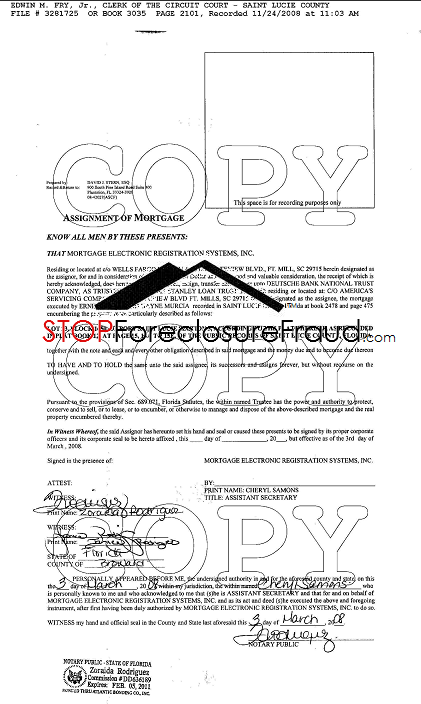







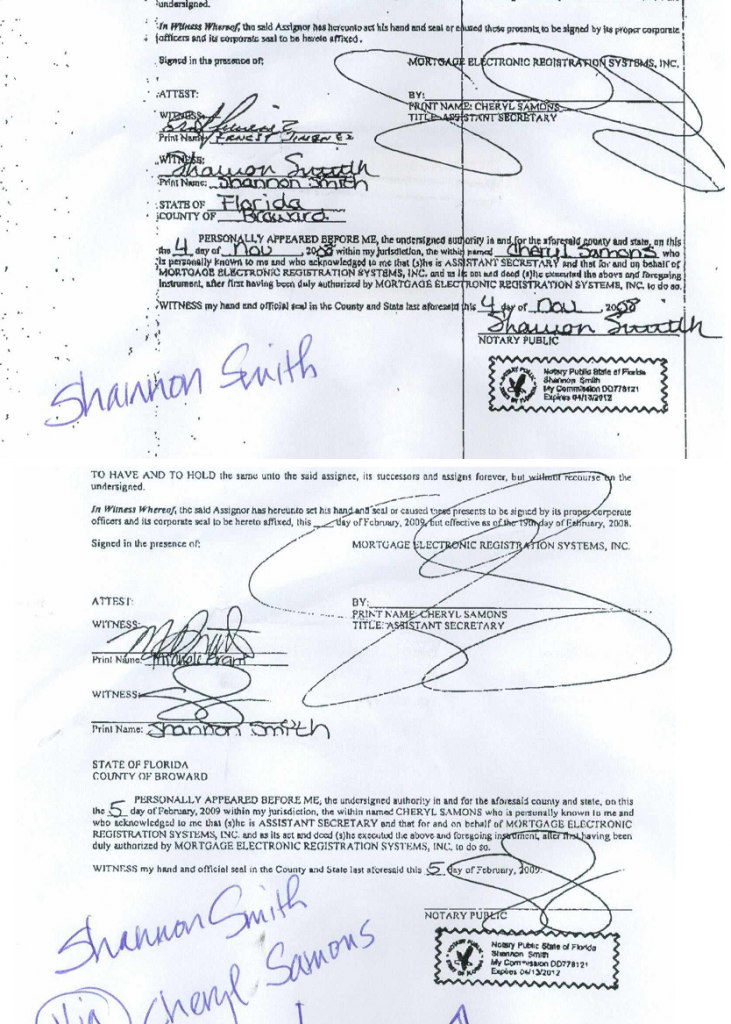
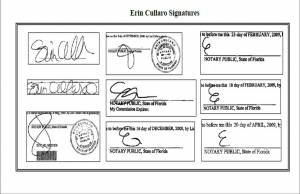
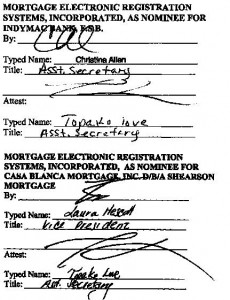
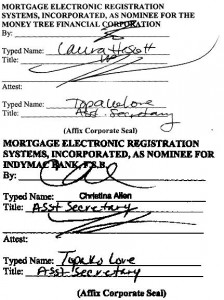
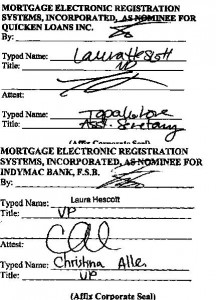
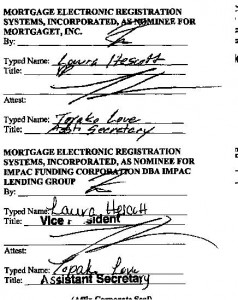
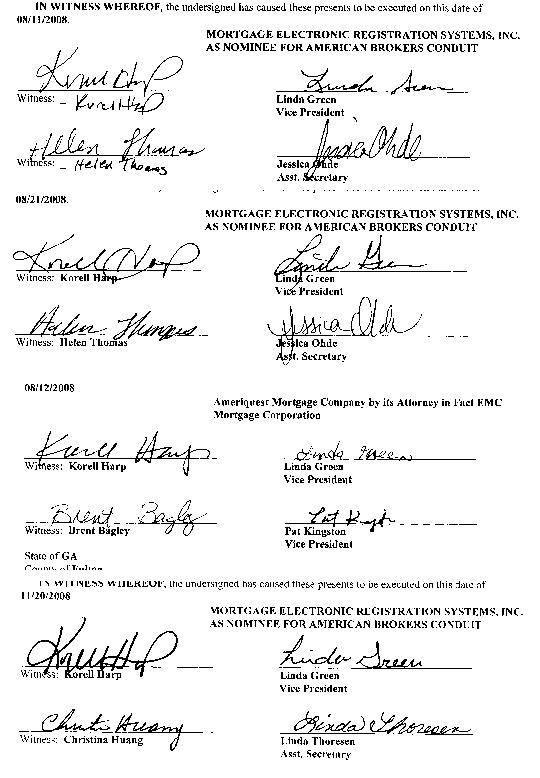

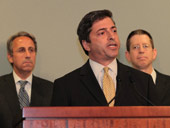





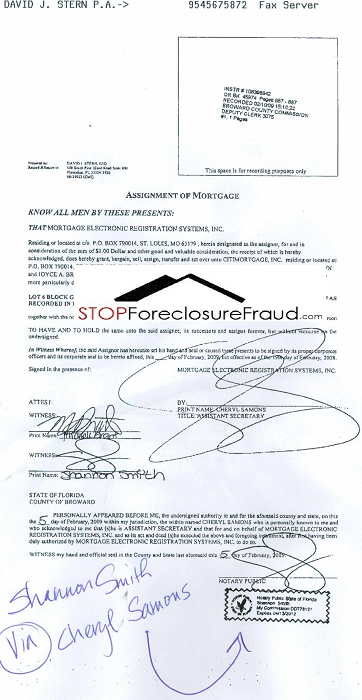
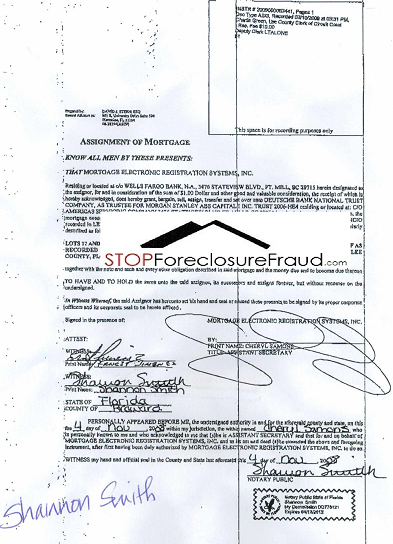


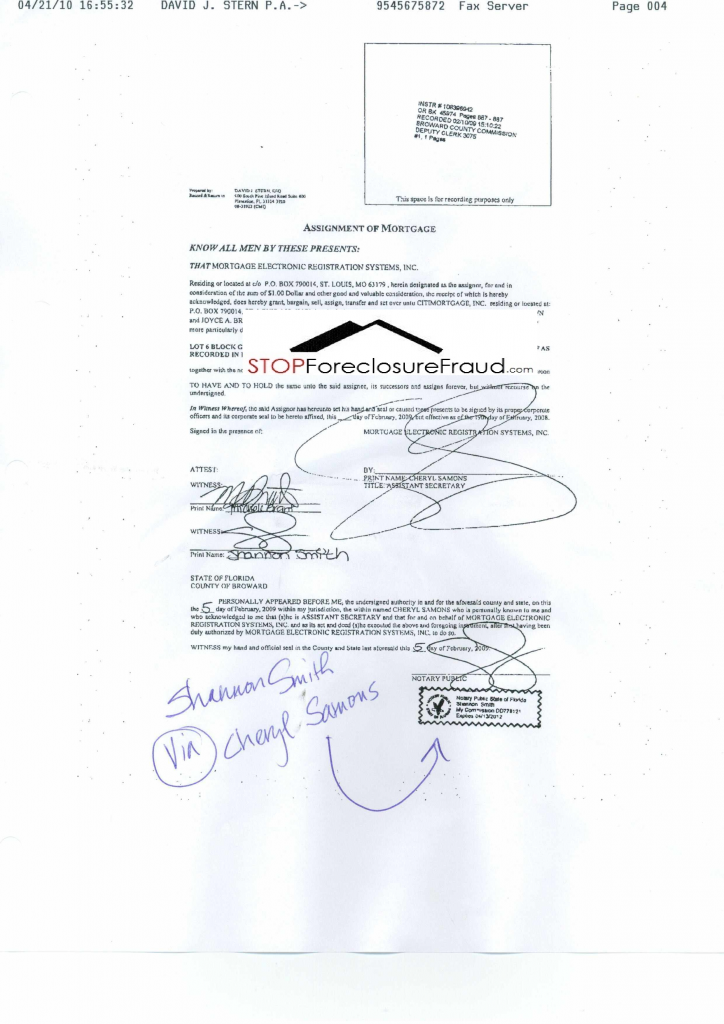
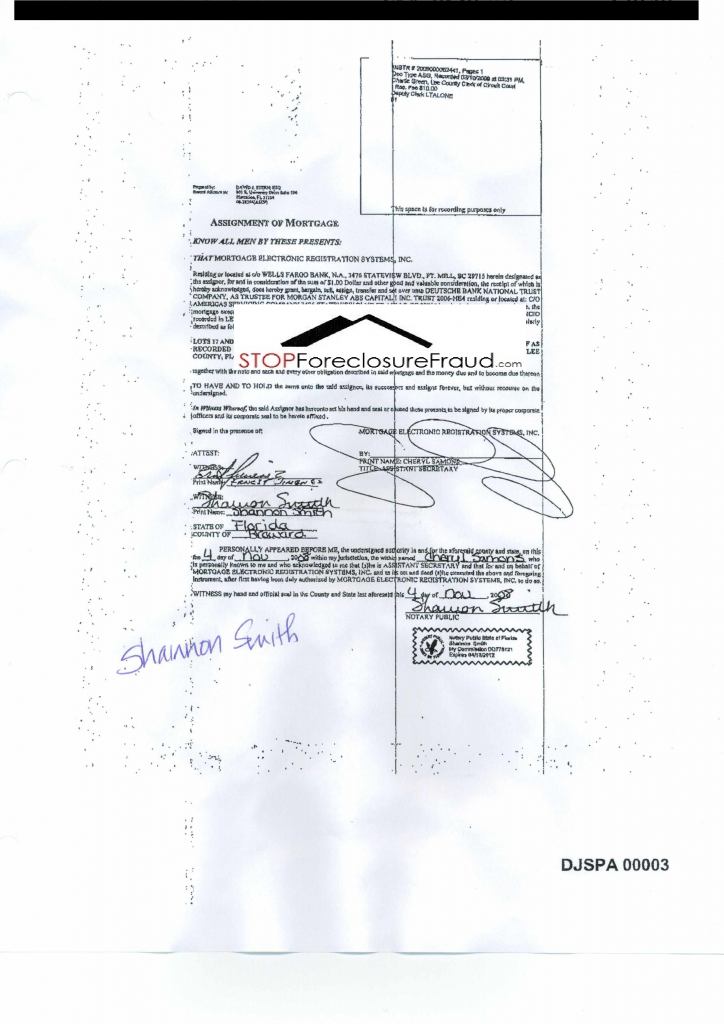









Recent Comments